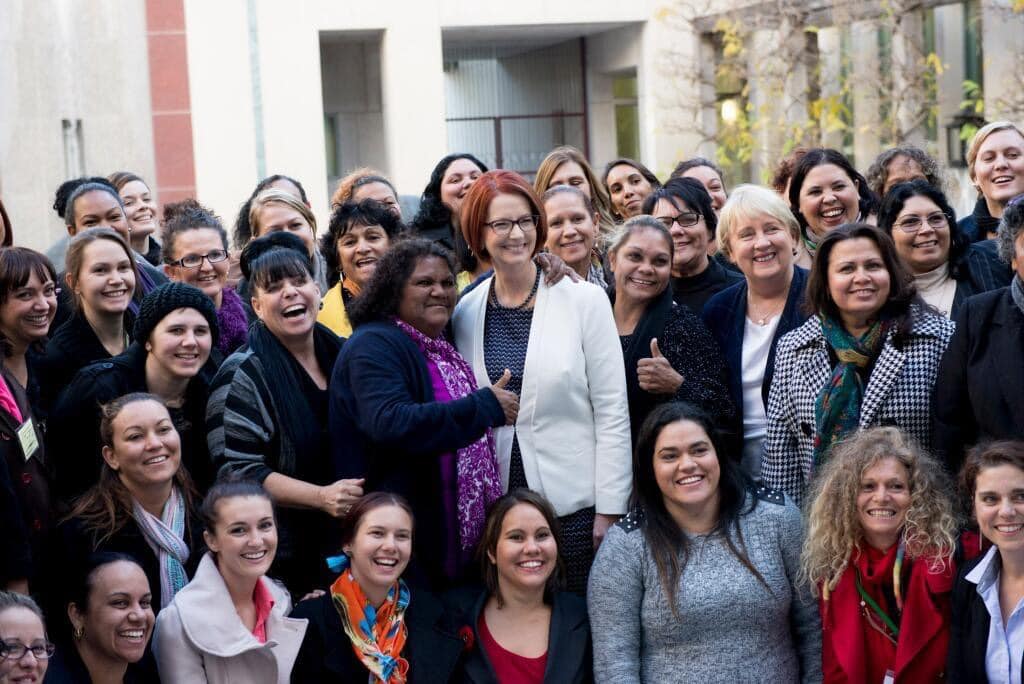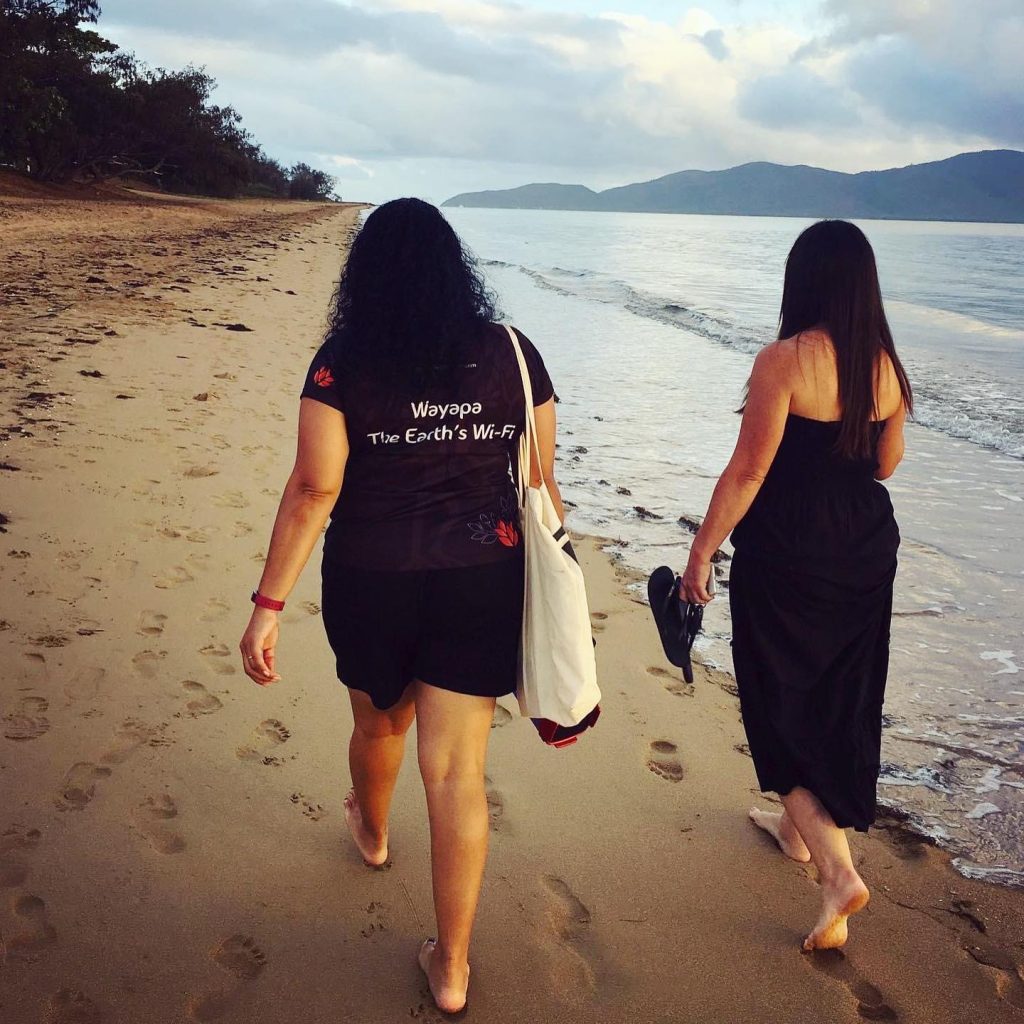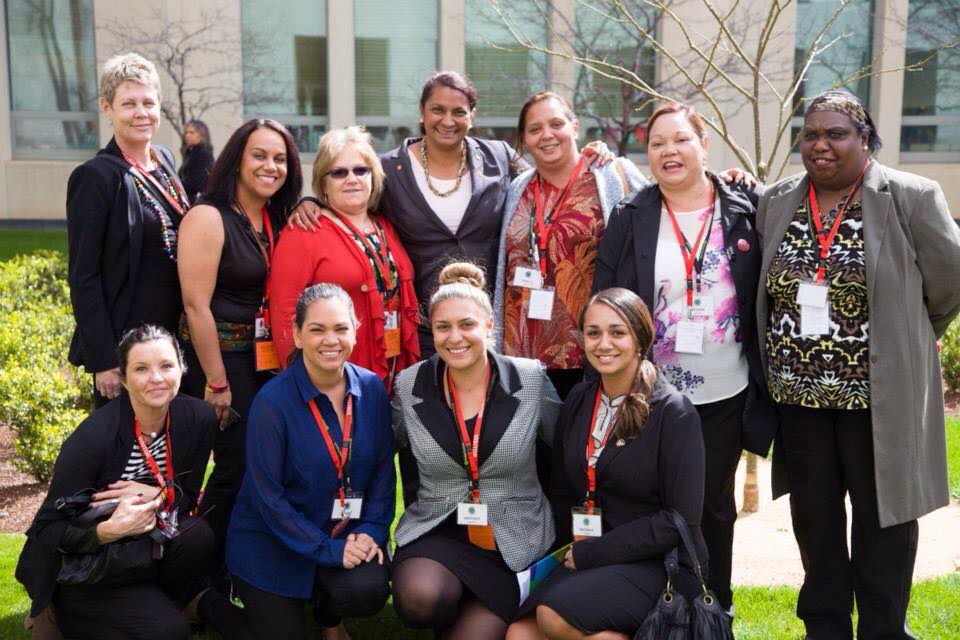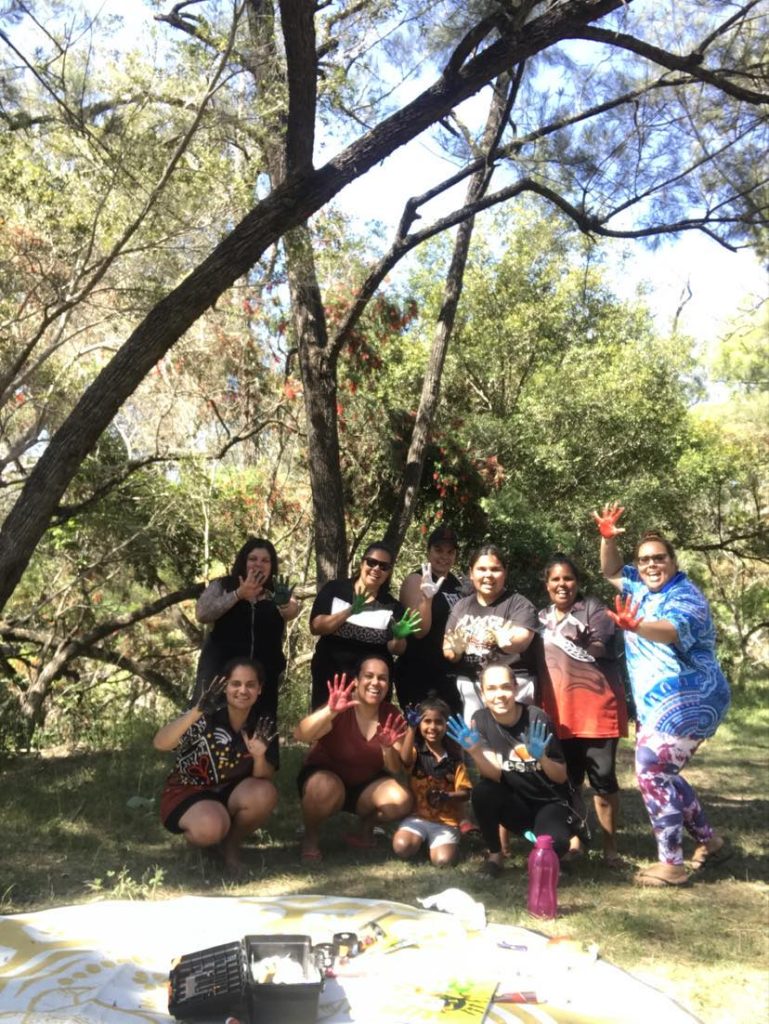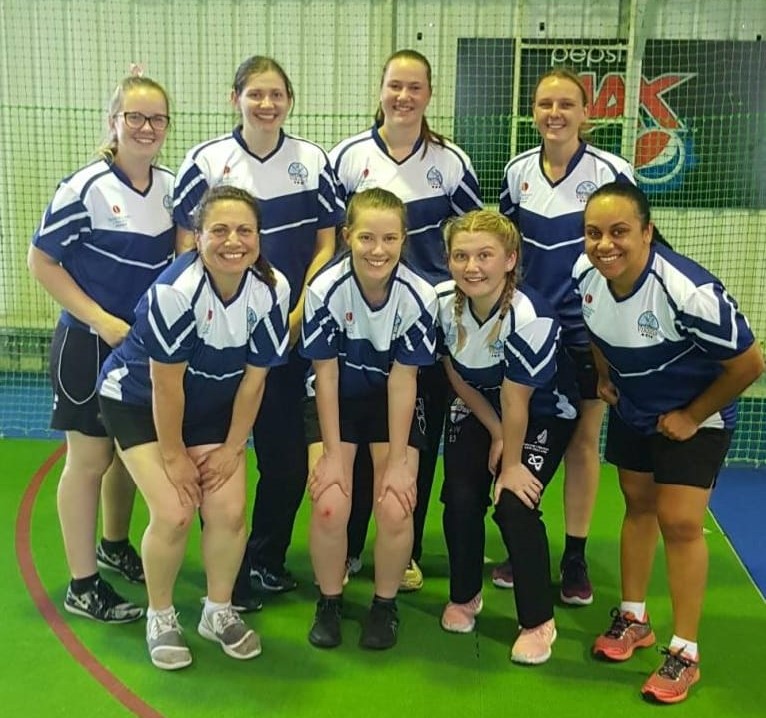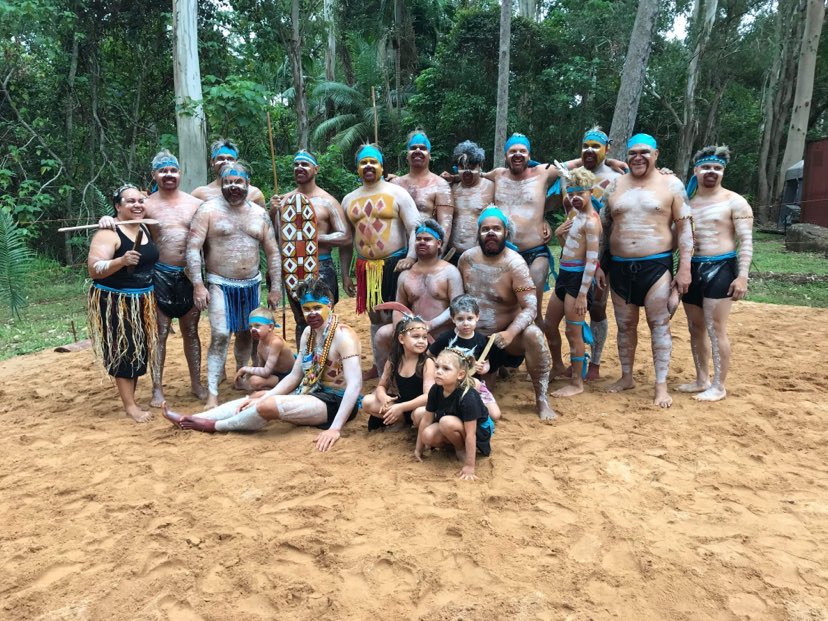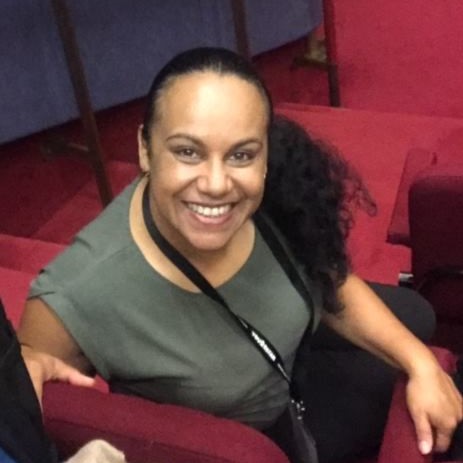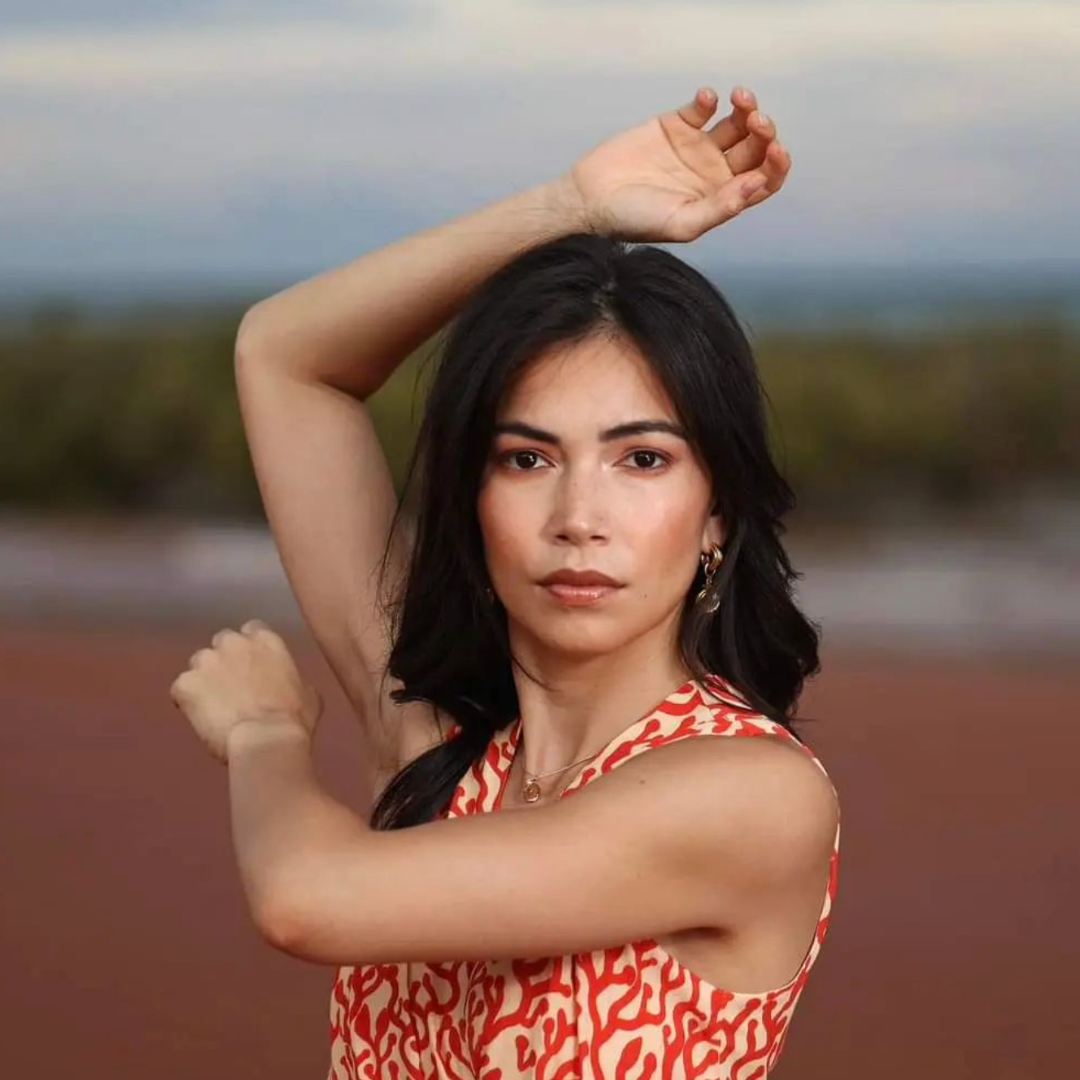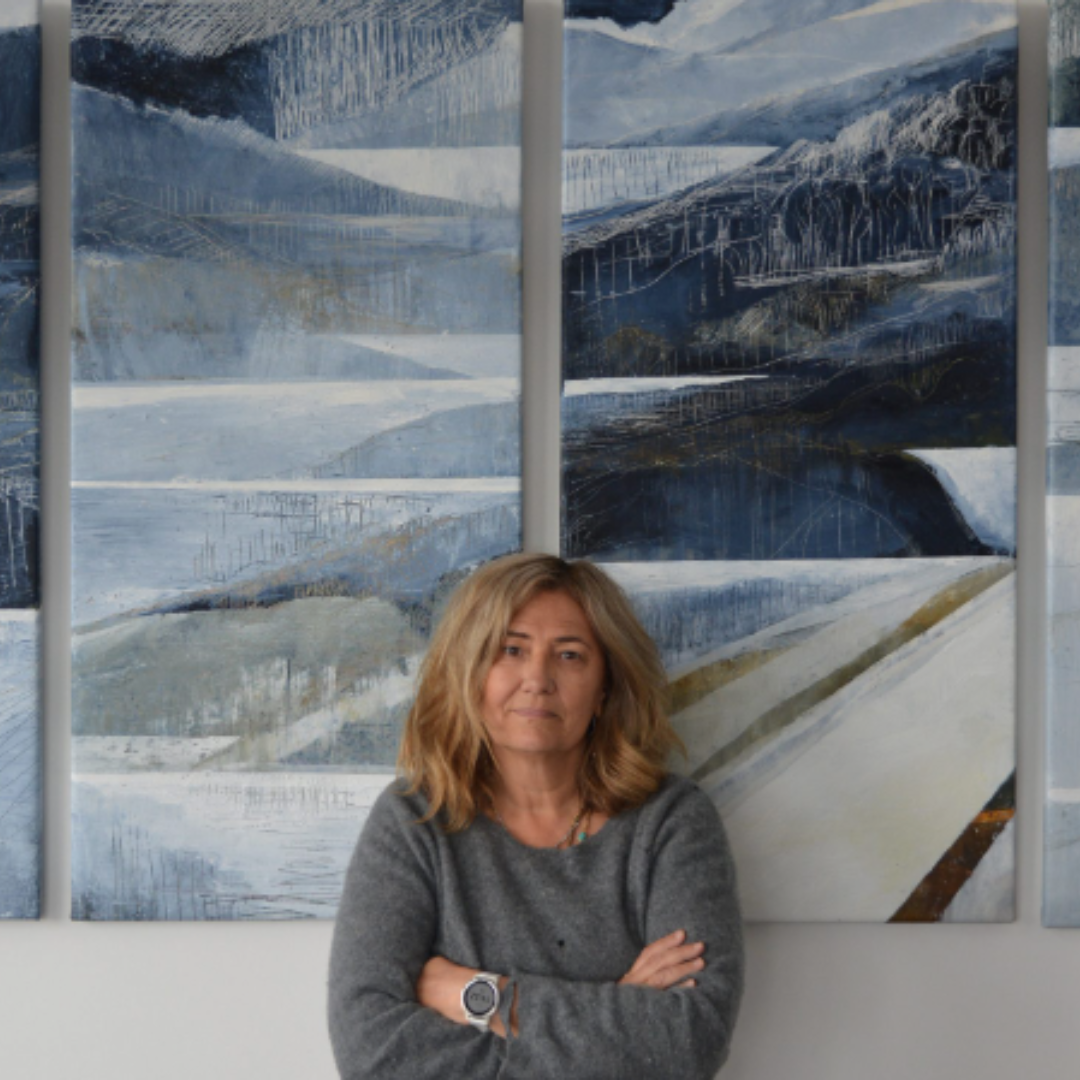[00:00]
Marie. Dennis, you moved where I moved from. Are in North
[00:05]
Queensland to Brisbane, Queensland. And then back to MacKay, can you describe
[00:12]
are for me and your experience growing up there. So
[00:15]
air is, is actually a little small town in the Burdick and sure known, as a sugar cane, a little
country town. It’s literally a One Main Street town, so, you can blink and you can miss it if you’re
driving through it. Now, it’s approximately about 8,000, people living there, but when I was living
there growing up, I feel like I want to say, it was actually much less than that. There’s a few
more people there now, but nice little tight knit Community. It was very safe. Growing up. When
did
[00:55]
she leave for the city? And what was the decision that made? You leave the community of
[01:00]
8000 people very little.
[01:03]
I left as an adult mainly for work, but then yeah. So for a career change to actually earn more
money to look after my family. So we had a bit of a change in our family Dynamic, that needed
me to go and get some full-time work that paid well. But I guess moving making the bigger move
to Brisbane was more about being closer to my brother and and his son and being in the midst
of family
[01:34]
support. Yeah, because it’s been so much time in the bush growing up. What was the transition
like for you when you got to the
[01:40]
city? Um, I had to get used to the traffic. The traffic is probably one of the worst things I still don’t
like to venture into Brisbane City as such as it was. When I moved to Brisbane, it was literally
the sister city of Logan which is just a little bit South so where I could avoid it, I wouldn’t go in.
[02:03]
To the city, I literally drive down a one-way, Street. The wrong one.
[02:13]
So much anxiety.
[02:15]
And I don’t know about you, but growing up in the country, it’s just automatic that you learned to
drive in a manual car. So your first option is always a manual car. Yeah. And then that was I was
like go to the city of look. Now, I’m not driving a manual car. Yeah. Like it was just, I don’t know. I
always.
[02:37]
Was literally one of the main. First things I changed was the car. I was driving
[02:43]
Yeah, even when I go back even when I visit now I still don’t like the traffic in Mackay in the
afternoon. There’s like a traffic report so the helicopter cruises around him guy and the traffic
report is literally like traffic is banked up on the straightener McDonald’s. You know, and there’s
like five cards. But when you’re in Brisbane, like a traffic backup, is literally like a half an hour,
white or extra to your time line. It’s yeah, it was really the biggest thing for me, but then on top of
that, you know, just being so far away from other family and
[03:25]
Countries very important to me and being Aboriginal, I was actually really blessed that are also
known as juru country. That’s a part of a bigger claim group. So our language group is beer,
governor and air is actually Guru and Europe. People moving North then up into what some
Noah’s bindle people but I never really thought about it too much until I left and that I was so
blessed to have actually been born and raised on my traditional country, you know? And so
moving away, I then started to experience that yearning for needing to go home. And that’s, you
know, that’s when you actually start to realize the importance of staying connected to Country
and to family and to that, you know, just to place
[04:25]
Laid that yearning did take you back to an area close by to MacKay what? Ultimately Drew you
back there?
[04:32]
McKay once again and it must be. I feel like it’s just a part of my my cultural obligation you know
like to where I actually care and careful family. Look after family or do things for family I’m the
first born on the eldest of the grandchildren so it’s and first born in my family that automatically
gives me a role within the family as the next care giver beneath the parents. So I guess that’s
that was a main part. I moved back to help a family member who was working in within the Child
Safety space. So a lot of my work involves around revolves around. So, First Nations people
vulnerable at risk youth and women and families that have experienced domestic and family,
[05:25]
All in. So that brought me back to help out with working with a number of children that were in
residential care and had been removed from their own country and their own family. So that took
me to Makai. Yeah.
[05:41]
You’ve talked about sort of what you do
[05:43]
do for work, careers of a big part of your story. What do you do for work now? And what is
[05:49]
your job? I basically work for myself where I’m an independent consultant. Mainly focusing on
working with Aboriginal Torres Strait Islander community, and helping to develop projects and
programs. Do a lot of community engagement Community consultations. A lot of my work is
grounded in the importance of connecting staying connected to Country and using the elements
and, you know, I guess, they foundations of being First Nations and indigenous people of caring,
for Country, first, and foremost, for then Mother Earth to actually care for us. So that’s a lot of
the work that I do and it’s grounded around that. Yeah, and
[06:34]
so, speaking of those things, what resonates for you in terms of being back in the Region’s what
are the
[06:41]
Things that help you do the job that you do and help me feel the way that you do.
[06:46]
I feel like it’s being back in region in the region. Actually enables me to do the work a bit better. I
mean, not better. Maybe just easier because you have direct access to
[07:01]
Country a little bit closer in a closer vicinity than you might do when you’re actually in the city.
So, you know, for example,
[07:11]
You know, Mackay you’re literally literally have a big ocean or a river that goes straight through
our main street. So there’s nothing for us to just go down at lunchtime during the day and put
the boat out into the river. And, you know, go out on the water if you need to, but you’re, you
know, you’ve got salt water. That’s about 10 minutes away and then you’ve got fresh water that’s
literally like a 20 minute drive, you know, Inland. But then, when you’re in the city, depending
where you are actually, and I mean, where I was actually living, it was literally half an hour, 45
minute drive to any salt water and probably about an hour drive
[07:53]
to freshwater you know, running fresh water, that made it hard for me to do my job in the city
you know, connecting
[08:02]
to country, but
[08:04]
Then I had to think about how I could do that better. So I’m really fortunate that being a wire for
work practitioner, which is actually an earth mindfulness, practice originally founded by a
gentleman, by the name of Jamie, Thomas and female James Sarah Jones, it’s grounded in the
philosophies of First Nations people with we do earth, mindfulness, narrative meditation and
physical movement. So what I had actually incorporated then was more narrative meditation
where we could visualize use a visualization of country you know, where I can actually help
people to visualize places on, you know, in a desert or nearby Beach and being able to remind
them of the smells that may be there. What they might hear in that space, you know. So I was
fortunate that I could change the way I did work, but then when you’re actually,
[09:04]
Really in the region like you’re The Heirs fresher for starters. You can literally plant your feet on
either, you know, sand.
[09:15]
Grass, dirt, you know, like it’s within minutes. You know. It’s not a complete drive to go and do
that. Yeah,
[09:23]
it’s such a nice image that thought of like, planting your feet on the ground and like really
connecting, like what you’re saying and taking away those sort of cement concrete buildings that
are built up around you, when you’re in the cities and direct connection with nature allows you to
sort of, yeah, see as the seasons change and you know, visualize what’s around you? How
does that impact you in your day-to-day? When you’re on country? And you can sort of immerse
in that experience, it actually helps
[10:00]
my own well-being, you know, like it, we live in a world where most of us work in spaces that we
have lived experience in. So,
[10:11]
For myself like being in the space of you know working with women that have gone through
domestic and Family Violence. That’s it’s no new thing for me. So with that comes vicarious.
Trauma I’m personally getting triggered at times, you know, like by hearing other people’s
stories or being in particular and so being able to be so close to Nature and to be able to
practice that actually practice what I teach other people. I guess, you know, like so what I
encourage other people to do being in the region helps me to actually just do that completely
and do that every day. So, my well-being, you know, I can actually continue to help other people
because we literally can’t help anyone else unless way fit and where I able and that’s not just
physically fit. That’s mentally fit, that spiritually fit and we only get that from being connected.
[11:11]
And connected to the Earthly elements and you know connected to those seasons and stuff like
you were talking about part of the practice. I talk about being conscious of the seasons that
we’re in summer, autumn winter spring, but when we’re being, you know,
[11:30]
Aboriginal culture, actually.
[11:34]
A touches to More Than Just Four Seasons, so there’s so much more depth to that. So we’re
conscious of when we’re eating certain food, when it’s actually meant to be growing when it’s,
you know, when we shouldn’t be eating something called, it’s important to be attached to that.
But then, you know, we talked about the cycle of the moon and being a female that’s important
for us to be conscious of two, and the Moon is so much clearer in the Region’s. So, is the stars,
and, you know, we can be more aware of that when you’re in the concrete cities, unless you
actually make the effort to go out and, you know, into your yard or, you know, make space for
that time to look up. You just actually miss it sometimes and you might be going a little bit crazy
and you just don’t know, but it could just be the cycle of the moon at that point in time, you know.
[12:27]
Soy tree, what you say because I feel like when you’re in the city, it’s sort of engulfs. You like it
swallows you, it’s a bit like when you’re in those shopping centers and you lose complete track
of the time, like you don’t even know you know you went in at the morning but you’re not sure
what time it is. And then I totally agree with you when you’re in Regional Australia without even
trying, not necessarily been consciously, you just drop into that space of being more connected
with nature and just noticing different things that you can be completely unaware of in a city
environment. You know, that just naturally has that impact of you feeling sort of a bit like what
you were saying about your feet on the ground. Just sort of brings you closer to Earth again.
And you just I feel like you can feel that in how you operate like for me my perspective comes
less highly strong around stuff that’s like all these things that kind of intercept when I’m in the
cities like busy.
[13:27]
a lot easier to work and all of that and then you just get a better perspective because you kind of
feel
[13:34]
You kind of get a sense of your proximity and relation to Nature. So you, you don’t feel so
important
[13:40]
and
[13:41]
that kind of helps release that a bit. I think you actually have time to appreciate that. There’s
actually something
[13:47]
bigger than you happening. Yeah. Yeah. And you know, you’re just so tiny in this massive
universe and there’s so many elements and things that are happening around you. When you
were talking about the shops and stuff just then I it made me think about, oh,
[14:05]
You know, like in the city, everything’s just open all the time. Like, it doesn’t even matter. It could
be 12:00 at night and you can literally just go to the shop and get something but then in the
region, that’s just not the case, you know? Like, and I remember growing up, but you had to
make sure you had everything by midday on a Sunday on a Saturday. Even because there was
nothing, the only thing that was open on a Sunday was the more attend store or, you know, like
that or the or the bike and that was literally only until about 10 oclock, you know? So it was, you
had to be more prepared but it actually created space for downtime and family time, you know,
we’ve become so disconnected from not just ourselves but from our family and as human, you
know, humans we’re actually we actually need touch and we need comfort.
[15:05]
And just to even sit and have a laugh with people. And that’s something that my family
consciously adopted being in the city. It was just, it’s kind of just automatic in the region that we
all had dinner together. We all did something together, you know, like Sunday was football day.
That was literally when you just went with everybody and you’d say half the town there because
there was nothing else to do, you know, like you had friends that were there all the time, but in
the city we had to make a conscious effort as a family Network, to say, okay, Sunday is our
family dinner day, you know, like in
[15:50]
There was, there’s no devices, there’s nothing, you know, like you’ve got to be, I think it’s major
more appreciate those times where there’s, everything’s just shut down, like there’s nothing. So
you have to
[16:01]
spend time with each other. Absolutely. And it was so like it makes you innovate, doesn’t it?
Because if you can’t get something and I suppose, it’s probably better for the environment in
that respect because you’re not just on this cycle of consumption. You like, you said, you have
to be more prepared. And sometimes you do have to go with that. And that’s the, you can’t get
to the bakery by 10:00 on Sunday morning.
[16:24]
You just have to think of something else.
[16:26]
Well, then you have the flower in the cabin and you actually had a mic, some dampers, some
bread. Yeah,
[16:33]
exactly. Exactly. Because I, you know, some people in the city get into that kind of habit of just
Uber Eats all the time, even when they’re caught out. But like I like the idea that it kind of
nudges you back into making or thinking outside the square because you have to and you
talked to the importance of sport within small. Communities tell me about your experience with
sport in Regional Australia.
[16:57]
So are there was literally not much to do so growing up. I reckon I played every sport that home
had to offer and it was just exciting though. Like we’d be up playing going to training before
school. You’d literally finish school, you’d go back for training and then you’d have another sport
to go to, you were connected with other people, you know? And I play like a player sport named
[17:24]
Grow that. Not a lot of people know played it since I was six years old. And when I came to
Brisbane, there was there’s literally just probably two associations that play it and it was a half
an hour drive away from me and it didn’t matter. I found like I was like I need to go because
that’s I didn’t know what to do with my life if I didn’t have Vaccaro because that was something I
had for so long. And in the small town is like, you play your mum, plays your name, plays your
army plays, your cousin plays, you know. Like so you just see everybody and when I when I
went to Brisbane, I missed it and
[18:05]
I went and found an association that played Vigoro and I guess it’s even though it was a half an
hour drive, it’s still got me the fix that I needed, which was Sisterhood. And, you know, being
able to, you know, not just be physically, active, but just be a part of an association and a
community of itself that
[18:30]
Kind of fits within a bigger city, you know, if that makes sense. You know, like it’s an association,
is it just it’s just a community of people that love the ones bought? I know that my my brother, he
actually plays a lot of football and when he moved down to Brisbane, he moved to play
semi-professional football in the Brisbane league and he’s a little bit on an age. And but he just,
you know, I always said to him as he was growing up, I said you just play the sport and that as
long as you still love it and you enjoy it. The minute you stop doing that. Well then it’s probably
time to do something else, but he still loves it. He still enjoys it. So he’s no longer in
semi-professional but he’s actually joined football club, like an air and a half away from the
region. But what he gets from that is that camaraderie, you know,
[19:30]
Like that, small community town. It’s so cute to say, like my son actually loves to play with him
too. It’s like a family in itself, and we drive an hour and a half at times to go and just watch them,
but it’s so good to see. Like, all of these people. I have no idea who they even are, but because
it’s such a small community, they love him. They even love my son. They’re like, you know, and
I’m like
[19:56]
The treat them like if you know Superstars but it’s just because they feel like they’re a big part of
the family and there’s Spectators that hug them and they want to, they want to get a bit of the
time and it’s just refreshing. And that kind of takes me back to Growing Up in are where I
watched my dad play and we just traveled everywhere. But there was, you know, we would
travel an hour just to go watch Dad play, which was a cop that was from the bird. Can, you
know, like we’d go to Bowen or whatever and we’d go to pross a pine and people would
everyone still know each other didn’t matter if it was an hour or two hours away, everyone’s still
knew each other and we just all of us kids just don’t even have any games I actually watched
but you know like you just have like oh you cousins travel too and all these friends and you just
play and it just took it just takes me back to my childhood growing up watching sport watching
my dad.
[20:56]
Sport. And so I think sport is actually a really big part in my life and my mental well-being. Even
when I went to MacKay, I started playing Indoor Cricket again, that that was actually quite funny
because, you know, I mean, in a region too, the sports literally like 15, maybe 10 minutes, you
know, down the road, not an hour or half an hour, but
[21:23]
You you develop like you actually become a part of another family?
[21:28]
and,
[21:30]
you build relationships with people and friendships and they last a lifetime, but the benefits of
small town sport is that if you want to actually make
[21:42]
A career of it or you want to, you know, exceed to next levels. Then you don’t have to travel very
far and you actually have committed people and individuals that want to help you get through
that. And then you probably find that there’s, you know about three or four other people, that’ll
just pop down.
[22:00]
And help you try and just because you know like because they can and it’s just so close. And I
think Ben and McCoy that was actually the first time since I was 17 that I actually had the
opportunity to represent North Queensland for Indoor Cricket and then go on to basic it in a
Queensland team for you know over 30 Masters. There’s no difference from the region to the
cities, you know. Like you still have opportunities like that. Yeah,
[22:33]
I love that and I think also what you say about the commitment to sport is really ingrained
culturally within the regions and so like you say, people are so willing to drive and the drive
becomes part of the fun, like, the road trip the song, the food, like the Banta, like it’s all kind of
part of that experience. It’s not like, oh yeah, quick just drop off pick up like it’s a whole day or a
whole like you know, and then often they’ll be
[23:00]
Canteen that’s serving up like dinner for afterwards or sausage rolls or red frogs or whatever
and that forms that experience, it’s like a thing that you love to do that you fully invest in. And it’s
not sort of a rushed thing that you just tack onto your life. Like it becomes, like you said, part of
your life and they become part of the family Marie, you’re someone that I’ve always been
inspired by, you know, the way that you think, and the stories that you share, I met you through
the Australian Leadership Foundation a few years ago, which was a great opportunity to
connect with people. Like yourself from your perspective, what does leadership look like to
[23:42]
you in the Region’s firstly? Thank you. You make me feel very special. It’s um, I live, you know?
I do try. I try to live my life by Leading like walking by example, you know, like an actually leading
in spaces acting with
[24:00]
Integrity and being true to myself but also true to community and my morals and values. That
are that have been instilled within me and it’s it’s actually it actually warms my heart to know that
there is other people that pay attention to that you know so I appreciate you. That’s the way I
feel leadership needs to be you know, that you walk the walk, you talk to talk and for me, being
an Aboriginal woman and
[24:35]
Connected to community and to you know trying to engage with even though I went to even
though McKay is not my traditional country, there’s still a responsibility for me to actually go and
engage with Community connect where I can and that’s the same thing even when I go to the
cities anyway because I’m literally on someone else’s country. So I need to make that added
effort to go and engage with the people of that that place and
[25:08]
Act in an appropriate way at all times. And in that then becomes, you’re not just leading in your
day-to-day work from a nine-to-five, you’re actually become a part of that community. So you
need to be actively in that mindset of
[25:27]
bleeding at all times, you know, like it’s
[25:31]
wherever you go, whatever space you may be in. And so I think for me I look to people that, you
know, people and then people that inspire me are the ones that lead.
[25:45]
exactly that way too where they are true to themselves and their responsibilities and their
[25:52]
values and morals.
[25:54]
At all times. I’m truly blessed that I was able to meet you within that space and I know that an
amazing example of leadership is you and the things that you do in your workspace and within
community and ensuring that people’s voices are actually heard and Leadership is never about
us as individuals. It’s about it’s more about what we can do for other people, how we can give
back to
[26:26]
communities. All thanks. Alright, and mutual feeling 100% of, as I said something that you
touched on as well is respecting and understanding and country that you’re on, these podcast is
to provide people with some good tips and you know some anecdotal considerations if they are
going to move what advice would you have to people who are moving onto country that they’re
unfamiliar with or they don’t?
[26:54]
I know a lot about in regard to connecting with First Nations people and the First Nations
histories when they’re on the
[27:00]
ground. One of the, you know, I guess the first advice I can always give people is do your due
diligence, you know, like, and find out who that may be like, if you’re moving somewhere, find
out who those the first sessions? People are of that land and actually look at, you know, you can
contact certain agencies and those sorts of things to actually engage.
[27:24]
With organizations or individuals when you go there but it’s always good to know, have an idea
before you go there and it’s always very respectful to find it you know, Elders within the space.
There’s an expectation that, you know, they’re out. They’re basically our leaders, they’re the
ones that have been living and working within that space. So it’s actually like if we’re engaging in
work, in a particular area or it’s always good to connect where you can ensure that your not
overstepping I guess any boundaries or rules you know. Like so there’s in some spaces there
will actually be areas that women may not be able to go to. So getting your head around what
that actually looks like. And then also, if you don’t understand it actually ask somebody, there’s
always we’re always open to having those conversations and like I mentioned, you know, like I
moved away from my
[28:24]
Our own country and move to someone else’s country and that actually is still relevant for me as
an Aboriginal person. So moving to someone else’s country means that I need to do the extra
work as well to make sure that I’m connected to the right people. I’m actually acting in an
appropriate way on country and that literally takes us back to, you know, since time and
Memorial that that’s how we’ve always practiced going into other people’s country is letting them
know what we’re actually coming there for and ensuring that we care for country as if it’s actually
our own. So and those practices need to be taken on by everybody regardless of wherever you
are regardless of whatever race you may be, that’s as humans. That’s how
[29:15]
And a responsibility is to care for Country. We can’t be well unless you know Mother Earth and
all country as well, wherever we might be. So you know, I guess that’s that’s my biggest thing is
actually make the effort to find out. A lot of people go to different towns and don’t, you know,
don’t ask the questions don’t actually engage with community. And you know, First Nations
people are, you know, Australia’s blessed that with the oldest living culture in the world. Why
wouldn’t you want to, you know, and embrace that and be open to learning more and there’s
nothing better than actually you know, sitting around a table with some older, you know, our first
Nations women and just having a couple and a bit of a yarn and you know, I’m a bit. I’m moving
on and age now and I’m not an elder.
[30:13]
I might have I might have wisdom highlights like one but I’m not quite there and I’m still learning,
you know, like I’m I love to learn the language of the people of the countries that I’m actually in
and
[30:28]
Rebirth you know, helping people to just reboot practices or engage or be a part of those is
actually really fulfilling and it makes my heart smile when non-indigenous you know
non-indigenous people are actually excited to be a part of that. We have a few different
organizations that actually come in and be a part of
[30:50]
you know, some conversations around some of the work that we do with the women that have
experienced domestic and Family Violence and strong women talking is an organization that
runs this beautiful healing Journey program grounded in culture and for First Nations women,
and one of the biggest things that brings
[31:09]
Connection. And just opens people’s eyes. Is our first, our initial time with women, we actually
take them to do ceremony and
[31:20]
We paint them up with okra, we get them with their feet in the water, you know? Like, and we
actually we’ve taken a other, you know, non-indigenous women to experience that just to give
them an insight as to how we do business and how we
[31:41]
Treat the women. You know, we get them grounded before we actually go through and do an
educational program with them and the feedback that we have.
[31:50]
from those women, you know, they some have some come back with tears some, you know, but
their tears of joy and the feeling that they get, and
[32:00]
it’s just beautiful to see other people, appreciate
[32:05]
the things that we traditionally and culturally do on a regular basis, you know, like it’s it’s nothing
you know we’re we’ve been a part of rebirthing cultural practices within my own family and
[32:19]
bringing back. We most recently just had a shaving ceremony for my nephew and it was one of
the first ones.
[32:29]
Since colonization back on my one of my family’s sides. But we
[32:37]
Had a lot of non black first non-indigenous people, come just to witness that on country and they
came up to me and they were like in tears later and they were so moved by it.
[32:50]
They felt really silly because they were getting emotional, like I never crying and they don’t even
know my nephew from virus. So but it was just the and I tried to explain to them, that that’s, you
know, your emotional because you felt that connection and it’s the energy of the space, it’s the
beauty of the culture, you know, singing to Country, caring for country, all of the energy in the in,
[33:17]
In that environment we create and it warms my heart to see other people. Appreciate that. Yeah,
[33:23]
there is just such an authenticity to everything that you shared and also a vulnerability, which I
think is just so wonderful and there’s not enough leaders that Embrace those things. I think the
way that you just described connection, it feels very tangible because connection is a word that
is thrown around all over the place nowadays and it’s genuine connection where
[33:49]
The energies there is the palpable thing that you feel. It’s not just a concept. It’s something that’s
experience that you’ve discussed and all of the things that you’ve related to us.
[34:00]
There’s a realness to them and I think going back to that thing that we talked about at the
beginning when you’re in a city environment, a lot of that reality tends to get taken out of your
experience so that it becomes pretty one-dimensional, you know? And then you like sort of
living vicariously through your phone or like whatever where is that you take those kind of walls
away. I suppose like the infrastructure and everything and then you go back into that
environment where
[34:32]
Like he talked about, even the restorative nature of your consideration about connection to
country that don’t take more than, you know, than you need and giving back and having that be
the focus. It’s just seems like a really simple concept. But like, we’re so divorced from it when
we’re in the city, because we’ve got so many distractions and we’re so busy, and what up, in
those important lives of ours, like, we discussed,
[34:59]
That I think the way that you just described that perfectly articulates, what it’s like when you
shed everything else and you’re actually just in that experience which feels very yeah.
Aspirational to hear you talk about that. Obviously podcast is an audio medium so people be
listening to these on their way to work or about their day. However they choose to listen to us.
Can you describe and paint a picture for us of what Makai is? Like,
[35:32]
so Mackay is a, I guess a small town that
[35:40]
can get can get is in close proximity to the salt water so you can literally wake up early duck
down to the beach and say the sunrise. There’s a beautiful little observation deck at one of the
beaches where you can actually there’s like some binoculars. So you can literally see some
turtles and I mean, that can literally be your morning every day if you wanted it to be a little bit
down the, like, a 20 minute drive. If you wanted some fresh water, you literally go up to, you
know, and lay in the beautiful water. And what actually is most beautiful about that space and I
think, probably, for me, is that all of those Rivers
[36:28]
Actually connect to rivers that are within the burdekin Shire. There’s rivers that run off the
burdekin river that actually come all the way down to MacKay.
[36:41]
Fresh waterways. You know, like it’s just amazing to me and I think that that’s probably another
symbol, you know, another way that everything is connected that we just don’t realize drive
down the road and you can run into anybody that you know, everybody’s friendly everybody.
Waves says hello. My partner gets a bit frustrated because I’m one of those people that I’ll be
like morning to someone that I don’t even know. And then and so then what that happens
though is I actually get to know a lot of people through Sport and through work and I’ll just pull
up at the shopping center and I’ll just have like a half an hour yarn with someone that we just
saw her at what I feel like that’s the you know that’s McCoy. It’s the space where you just you
can go down the road and you can say someone and have a chat of you know but you know
someone it’s not like you go in the city and you know, you will possibly about 20 different
[37:41]
People and you never met them before never even seen them before, you know? Like so I love
that about Mackay is that you basically get to know everyone, like, they’re your, you know,
you’ve seen them before, they’re friendly, familiar faces. And then the friendships that you
actually do build are actually, I feel like they’ve been life lasting ones, you know. Like so even
even when I moved from a, you know, I grew up there though, but you know, small towns, you
don’t even have to see them all the time to be able to reconnect with them. And I guess the
good thing I’ve ever quite too, is that half of my you know some of my friends and family from
here actually moved to Macau because it’s not that far away either. So you go to the, you know,
you go to the local and you see someone that you used to live with or go to school with you
know, so it’s it’s not 16 hour drive away or whatever you know like the city and the beauty of it is.
It’s a small.
[38:40]
Town. But you can you have access to?
[38:45]
The beauty of nature, right? At your doorstep. And, you know, even when it comes to working,
there’s
[38:53]
Work opportunities that other people from the city fly in for, you know. So it’s it’s not that you
need to go to the city to get work. There’s literally people doing Flying flying out to come to
McCoy to work. You know. So you have like a specific memory
[39:12]
that you can think about that made you realize that Makai or living in Regional Australia is your
home like any Bistro kind of thing that you can think of a moment when you went yet, this is
where I feel like
[39:26]
I belong for me going.
[39:29]
Going back, like driving into a town, that I haven’t been to, for a long time, or if I’ve moved away,
like I still literally get it. Now, when I go back to are like, if I drive,
[39:44]
there’s a certain point.
[39:46]
where I know I’m I’m basically home, you know, like the the air changes the smell changes and
just the way that you
[39:57]
You know and I’ll probably shouldn’t do it but you put your arm out of the window to feel the
breeze, you know? Like it’s just, you want them with no down and you just smell home like its
[40:10]
Freshness. And then there’s a sensation that goes through my body of
[40:16]
release and just calm, you know, like it’s
[40:22]
there’s no built-up anxiety like in the city. It’s
[40:27]
yeah, so I that for me is why I know that that’s
[40:34]
We’re all, you know, we’re all probably. We’re all probably retire. That’ll be me, but it’s just that
sense of calm and just piece that just fulfills. My body and my heart and just makes me smile
you. Oh, I feel like
[40:51]
instantly released because it’s almost like pace is the ultimate, isn’t it? Like in this day and age
when we’ve just got so many things, competing with us all the time and we’re operating at such
a high level. It’s like we feel our lives up with all these things. But ultimately, all we want is that
moment that you just beautifully described because it just feels so good to feel like that. We are
now going to bust a myth. So can you bust this meth? There is no dating scene in the Region’s.
[41:28]
oh my gosh, I reckon it’s probably easier to date in the regions like
[41:36]
Yeah, I reckon it’s probably harder to date in a city like you’re literally trying to find one person in
thousands and thousands of places.
[41:51]
And you know, like so I I did meet somebody in the city but connection didn’t, you know, like
nothing. It wasn’t really concreted, you know, like it wasn’t until they moved to McCoy, you
know? Like and I feel like that was the space where we had time.
[42:13]
To just connect to each other, you know. Like there was, you know, you take away the the hustle
and the bustle and just the fastness of life, but then you come to the read. Like you come to a
small town and you’ve got no other choice but to get to know each other because that’s all you
got is time. I guess, you know. Like it’s you know, there’s this beautiful spaces. I mean I reckon
they’re probably is beautiful spaces in the cities but they’re probably a long way away, you know.
Like but you could literally drive down to the river and Mackay and watch the fireworks that, you
know, like at a certain time and it’s just a picnic by that. You know, by the by the river is actually
a little bit more romantic than I don’t know. Going to the go to a nightclub
[43:05]
But yeah, I think that that’s it, bust that myth because you, it’s easier. I reckon, but that’s just me
but, you know, personally speaking. But I feel
[43:17]
like it’s been busted and I have the same already. You have done such a good job of
[43:24]
Dangling, a carrot for their for the regions based on everything you’ve discussed today. So if you
were to pitch living regionally, even though you’ve done a fantastic job of it so far. But in one
sentence, what would you say?
[43:41]
um, if you want to be
[43:43]
Your true self and will even find your true self. That the region would be a beautiful peaceful
place to do that and find peace within you be connected not just to yourself but also to place
[44:00]
I feel like the best place to do that is in the Region’s.
[44:03]
Marie, that is so beautiful, and I feel like it’s the perfect summary of a, whole lot of things that
we’ve talked about today, that have got so much appeal. The way that you’ve talked about, it
has been extremely inspiring. So thank you so much for your perspective. I think we’re very
lucky to have it and lucky to have people like you in communities all over. Australia, so thank
you for your time. Thank
[44:29]
you so much for having me and allowing me to hold space with you, and actually voice, the
beauty of the regions and what it can actually do for you and what it has actually done for me.
